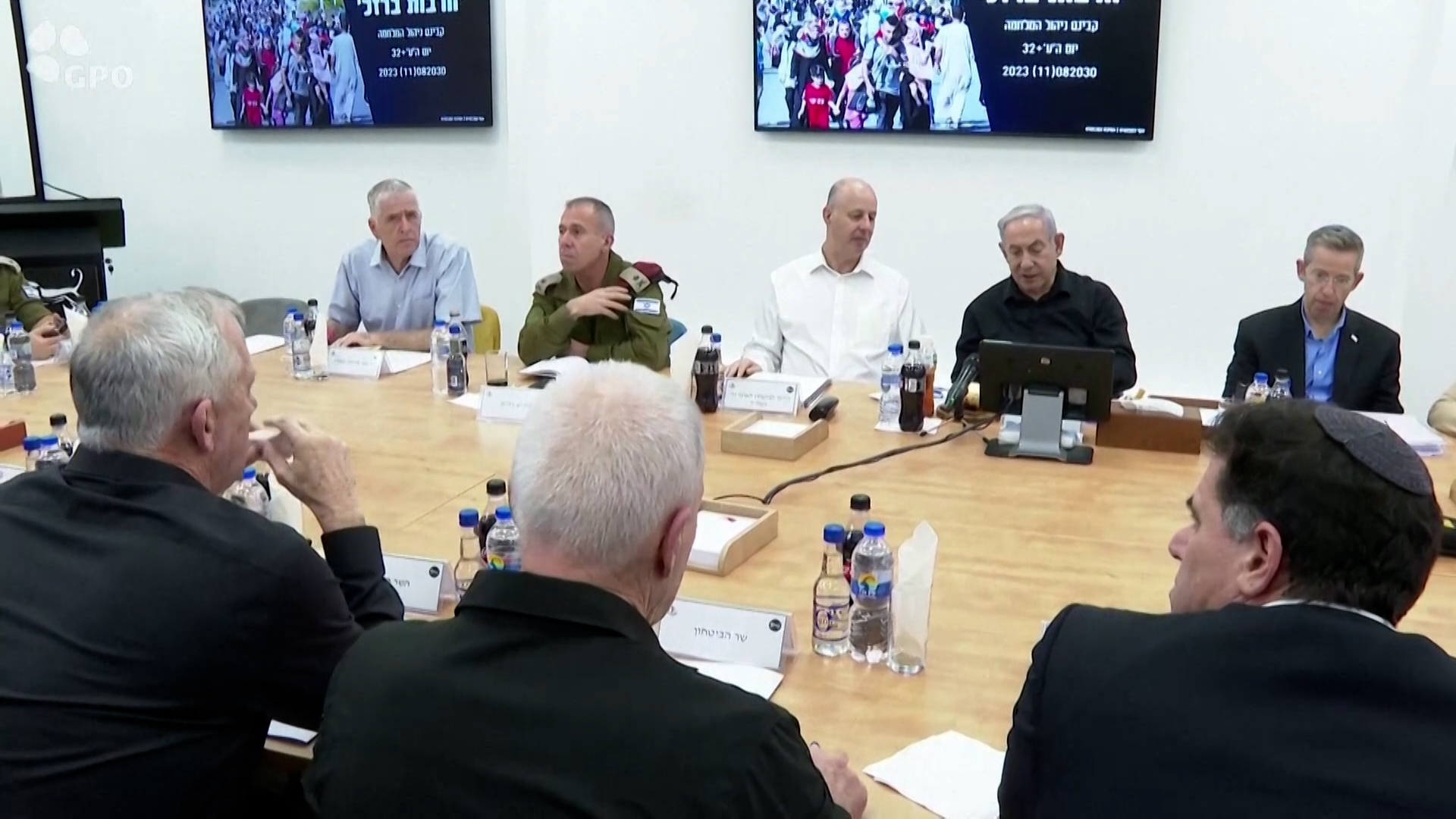play videoplay video
Video duration 02 minutes 59 seconds 02:59
The War Council represents the narrowest political and security body in Israel, and is concerned with making political decisions in times of war.
The council - which was formed after the Al-Aqsa Flood operation - includes Prime Minister Benjamin Netanyahu, Defense Minister Yoav Galant and former Chief of Staff Benny Gantz.
Participating in the council - as observers - are former Chief of Staff Gadi Eisenkot and Minister of Strategic Affairs Ron Dermer.
According to a report prepared by Salam Khader, this council is experiencing sharp disagreements that plague its leaders, and reflect a struggle for influence between one politician (Netanyahu) and two generals (Galant, Gantz).
Together, the three represent the weight of the decision that controls the scene in Israel.
Council members
Gallant: He spent 35 years in the ranks of the army and participated in most of Israel's wars. Then he entered the doors of political work after failing to assume the chief of staff because he was accused of violating international humanitarian law during the 2008 war on the Gaza Strip, and of involvement in corruption cases.
Gantz: He combines military experience and political experience. He played leadership roles in Israel’s wars and led the 2012 and 2014 wars on the Gaza Strip. He has become Netanyahu’s worst nightmare since he entered politics.
Netanyahu: He has modest military experience and a political and diplomatic career that extends for about 4 decades. During his tenure as prime minister, he launched 6 wars against the besieged Palestinian Strip, and he is accused of corruption and receiving bribes.
Public disagreements
The differences that exploded into public fall under two headings: managing the battle and the relationship with Washington, and branching out into details of internal policy, combat strategy, and dealing with international pressures.
Both Gallant and Gantz support policies that are supported and needed by the military and security institutions and related to who will rule Gaza after the war, and the enactment of a law that allows the recruitment of religious Haredi Jews, two issues that could remove Netanyahu from his position.
While the Israeli war on Gaza continues, it seems clear that the dispute is not over the war itself, but rather a settling of scores between opponents of peace and partners in war.
Source: Al Jazeera

